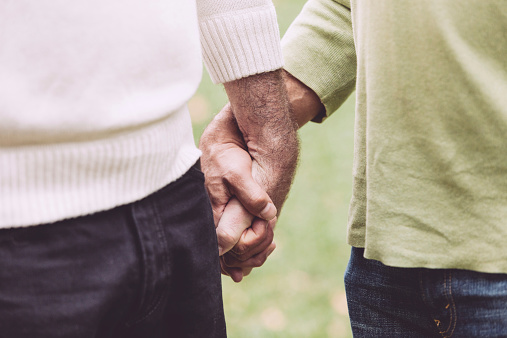
“The eyebrow goes up and it feels like a judgment when I tell them I am attracted to girls. They look confused.”
“The default is always that you are straight, and you have to correct them. It is never an open ended-question. They don’t know what to say when you’re having sex with a woman. That discredits my lifestyle and the risks involved in all types of sexual activity.”
These are remarks from two young women in a recent focus group in Los Angeles County about the experiences of lesbian, gay, bisexual and transgender (LGBT) patients with health providers. Their comments underscore a pervasive but often ignored problem within health care for LGBT populations – a problem that is coming to light more and more through new research and legislation.
LGBT patients, according to a March report by the Institute of Medicine, have unique healthcare needs and concerns – just like other minorities. The UCLA Center for Health Policy Research also revealed in March that older LGBT adults in California have higher rates of chronic disease, mental distress and isolation than heterosexuals.
Why? Because too often LGBT patients receive substandard treatment from medical staff – or skip care altogether, fearing judgment, ignorant questions, blank stares and irrelevant recommendations.
The answer is health professionals who are more knowledgeable about and sensitive to the specific needs of LGBT patients, approaching each patient as an individual, without assumption, judgment or ignorance about what they need or are concerned about. This concept isn’t new. In fact, throughout health care there is a movement to increase “cultural competency”: the degree to which patients and providers can communicate without cultural differences hindering the experience.
And it’s not just political correctness; when health professionals don’t understand or relate to their patients, there is a greater chance for misdiagnoses, lack of diagnoses, improper follow-up and unnecessary procedures – all of which dramatically impact the quality and cost of care. And when people who need care avoid it – because of bad experiences – their outcomes worsen, ultimately requiring more expensive care later on.
The problem, however, is that cultural competency is often thought of as a language or ethnic issue – and only applicable for doctors and nurses. Such shortsightedness discounts the impact that various other medical workers have on a patient’s overall experience.
For example, allied health professionals make up 60 percent of all health workers, including positions that greet and interview patients, check their blood pressure, draw blood, take x-rays, and perform physical therapy. Since California must fill millions of allied health positions in the years to come, how we train these workers is a key opportunity to ensure more effective, culturally competent care.
A huge part of this skill is simply better communications. Workers must engage patients without judgment or assumption, and body language and facial expressions – whether showing confusion or disapproval – are just as powerful as words. But language itself is important too, including knowing the latest terms LGBT patients use for partners, sexual activity, etc.
These can’t be casual, occasional exercises. Teaching these skills and providing expertise specific to LGBT populations must be integrated into mandatory trainings for health workers. That’s why local providers participating in the Los Angeles County Lesbian and Bisexual Women’s Health Collaborative are developing a curriculum for new trainings.
Meanwhile, health providers and training programs must expand their definition of cultural competency – and the types of workers who are trained. And it’s time that the Office of Multicultural Health incorporate LGBT patients and concerns in their work.
More importantly, it’s time to lower the eyebrows of judgment and uncertainty if we truly want to the lower health disparities among LGBT patients – and the overall cost of health care.
Sue LaVaccare, M.A., is co-founder and Steering Committee Member of the Los Angeles County Lesbian and bisexual Women’s Health Collaborative..





